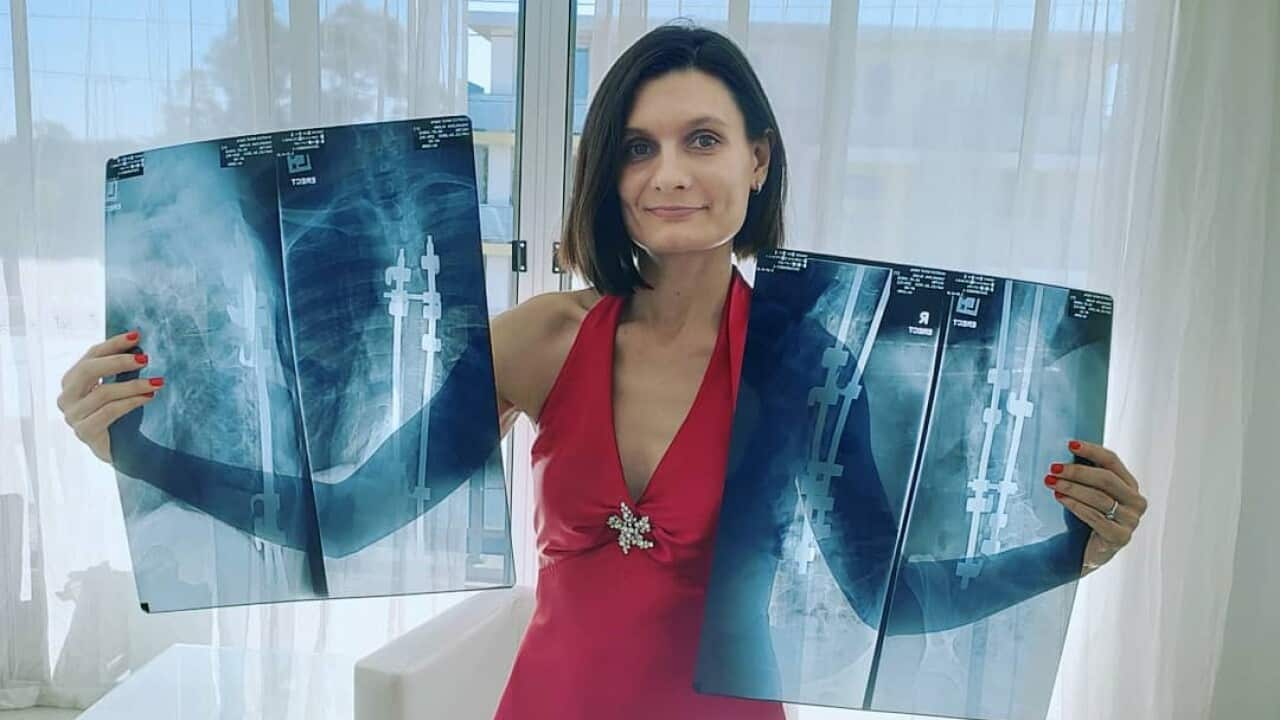Igor Skikevich was living a very active life: travelling extensively, spending time in nature, and his job was developing routes to the most exciting places of the Russian Far East for foreign tourists.
However, a wrong diagnosis changed his life when he was 42 after he went to see a doctor about the muscle pain he had been experiencing with, what he thought was cold.
“Today I know that that doctor made a mistake,” he says.
“I went to see a neurologist at a private clinic, who gave me a wrong diagnosis and prescribed the wrong treatment for my muscle pain. As a result, I developed osteomyelitis, which led to spinal cord festering, then infection spread to the bone of the cervical vertebra."
"No surrender"
A month later, he was completely paralysed.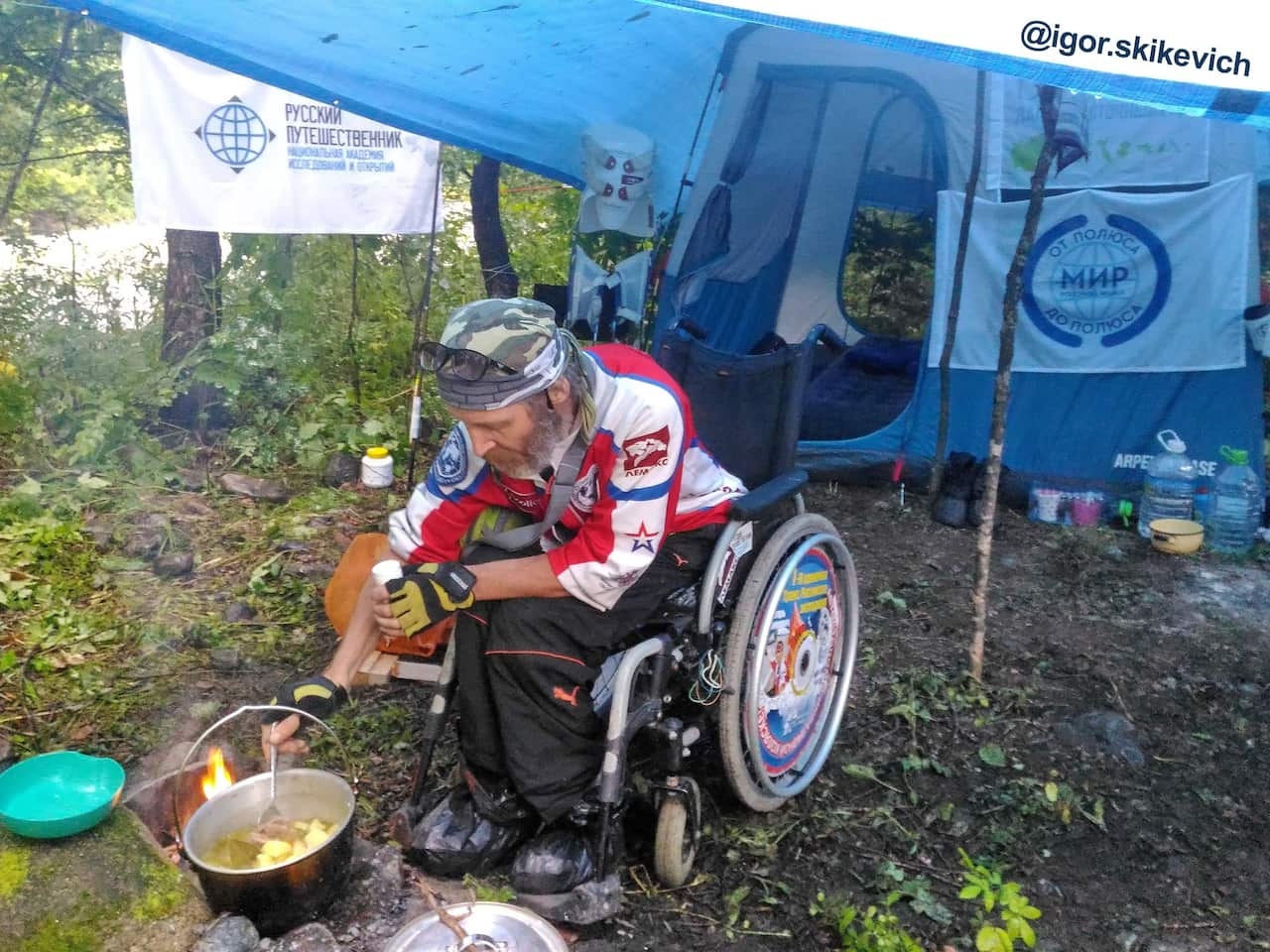 Mr Skikevich (55) recalls paramedics carrying him to the ambulance in bedsheets, afraid to touch him in that condition. He says he tried to overcome all the horror and despair by loudly singing the famous Russian song “the ship that didn’t surrender to the enemy”.
Mr Skikevich (55) recalls paramedics carrying him to the ambulance in bedsheets, afraid to touch him in that condition. He says he tried to overcome all the horror and despair by loudly singing the famous Russian song “the ship that didn’t surrender to the enemy”.

He always loved nature, spending nights in tents, cooking over a campfire Source: @igor.skikevich
And just like the ship in the song, he didn’t surrender to all what was to follow. Doctors at the hospital couldn't find the source of infection despite several MRI scans. He remembers every cell in his body hurting because of necrosis and extensive bedsores. He went into cardiac arrest three times but continued to cling to life.
The doctors finally found the source of infection and performed the surgery after which Mr Skikevich remained in a coma for two weeks.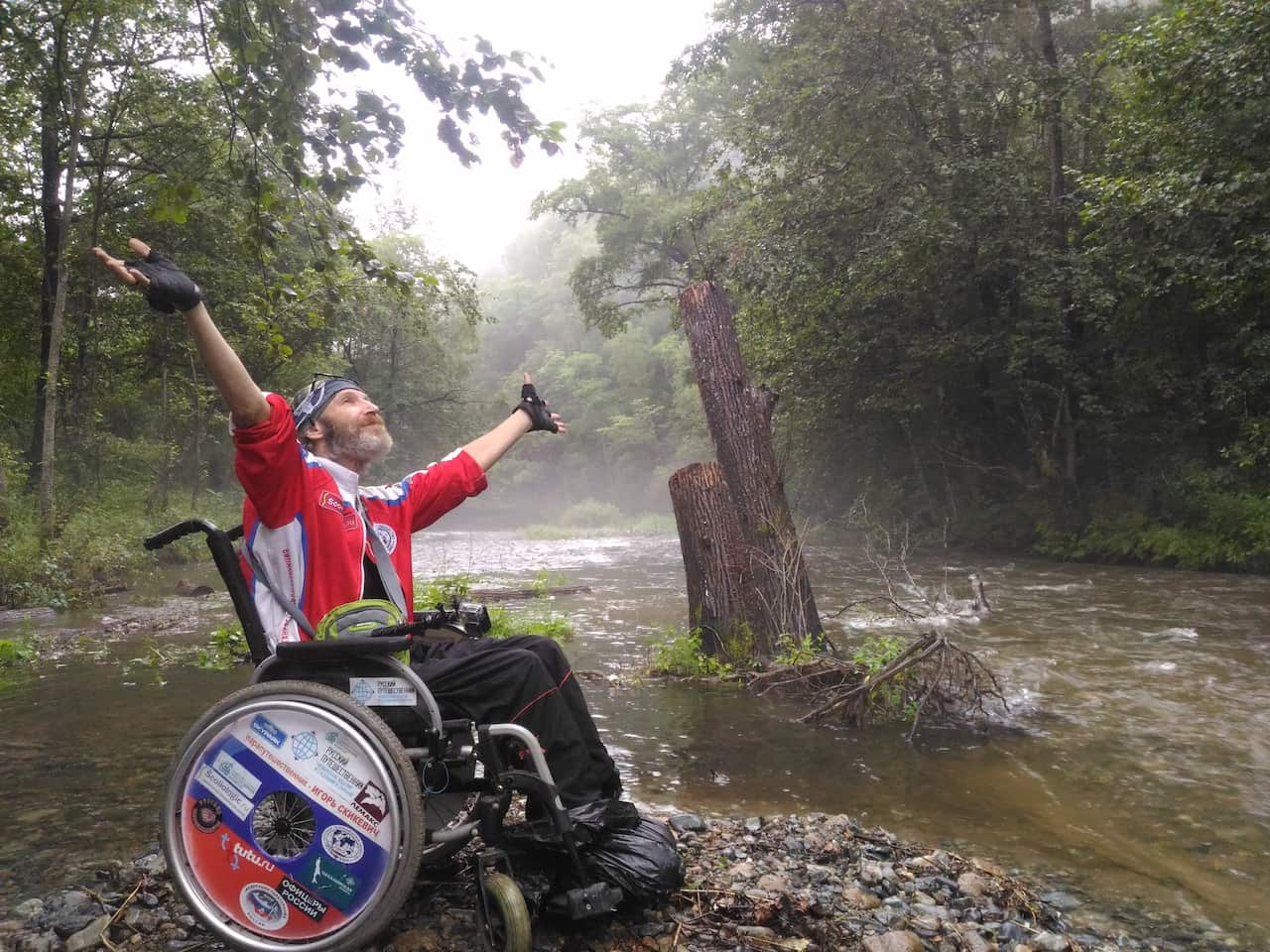 His wife - 30 at the time - left him.
His wife - 30 at the time - left him.

"You will do something extraordinary that no one had ever done before!" Source: @igor.skikevich
"Her whole life was still ahead of her,” he says in a calm and understanding manner.
He spent the whole winter at his mother's house.
"I was lying in an embryo position, not thinking much. I was alive, could breathe, and it was enough. I was like a vegetable; my mum fed me, cleaned me and it felt like I wasn’t there, just my body."
“The prognosis was very poor for me. The sixth vertebra was removed completely, and the cervical vertebrae are the most serious of the injuries. Plus I had a spinal cord rupture, a spinal cord stroke. My brain after coma wasn’t able to analyse this new reality,” he said.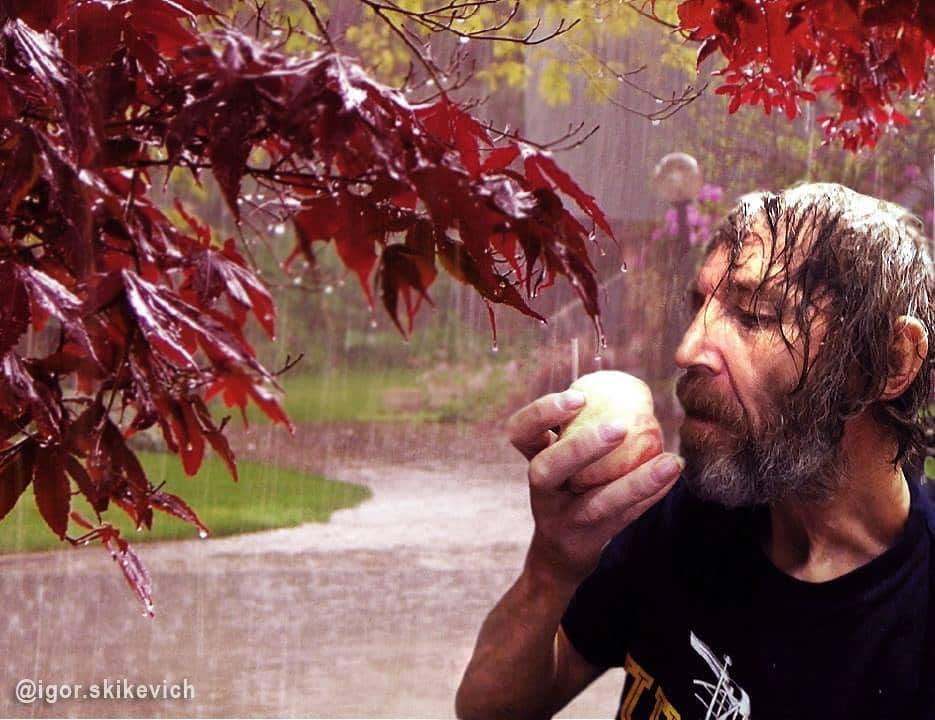 Mr Skikevich says he began to use a special thinking technique to build his will power and imagined himself as a wounded soldier on the battlefield who needed to complete a combat mission.
Mr Skikevich says he began to use a special thinking technique to build his will power and imagined himself as a wounded soldier on the battlefield who needed to complete a combat mission.

“Death, come to me and I’ll hug you!” Source: @igor.skikevich
“One day, I had a powerful dream that there is an order to extinguish the combat point, and I needed to crawl. I woke up to see that my leg twitches, like on reflexes. It was real. And I realised that my technique worked."
After several weeks of training his mind, he was able to sit on the bed without help.
"This was my first victory," he says. "I was sitting on the bed with my hands all crooked. My mum cried with happiness for two days. After all, all the doctors said there wasn’t any chance."
Developing new talents, "thanks to the disability"
To restore brain function and memory, he started to compose poetry. He began using a pen once again to write down his poems. To regain function of his hands, he began to paint and started to play musical instruments to develop strength in his fingers. He says for all these hobbies, he must thank his disability.
The doctors from the St Petersburg Bekhterev Psychoneurological Research Institute, who examined him, were surprised at his progress.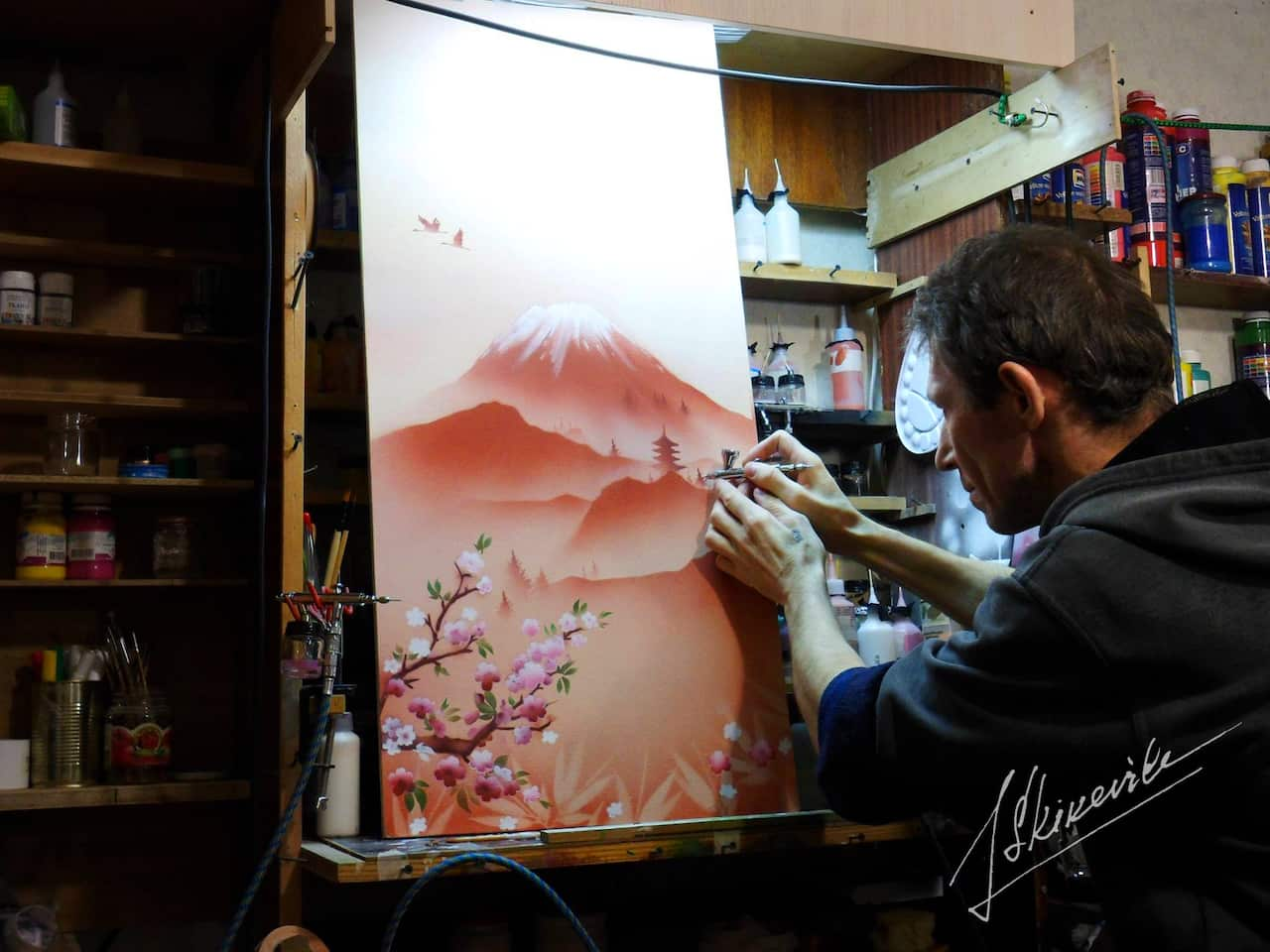 Since 2010, Igor Skikevich has been actively involved in sports and social tourism, testing the popular tourist routes for accessibility for wheelchair users.
Since 2010, Igor Skikevich has been actively involved in sports and social tourism, testing the popular tourist routes for accessibility for wheelchair users.

"Thanks to my disability, I can paint now" Source: @igor.skikevich
In 2017, he received a patent for his invention - "Barracuda"- an affordable self-propelled underwater diving wheelchair for people with disabilities. Though the first self-propelled underwater wheelchair was invented by a disabled British artist Sue Austen, it costs several thousand pounds.
Mr Skikevich says he is very keen to bring his scuba diving wheelchair to Australia where he says many people with disabilities who are otherwise fond of scuba diving will be able to benefit from it.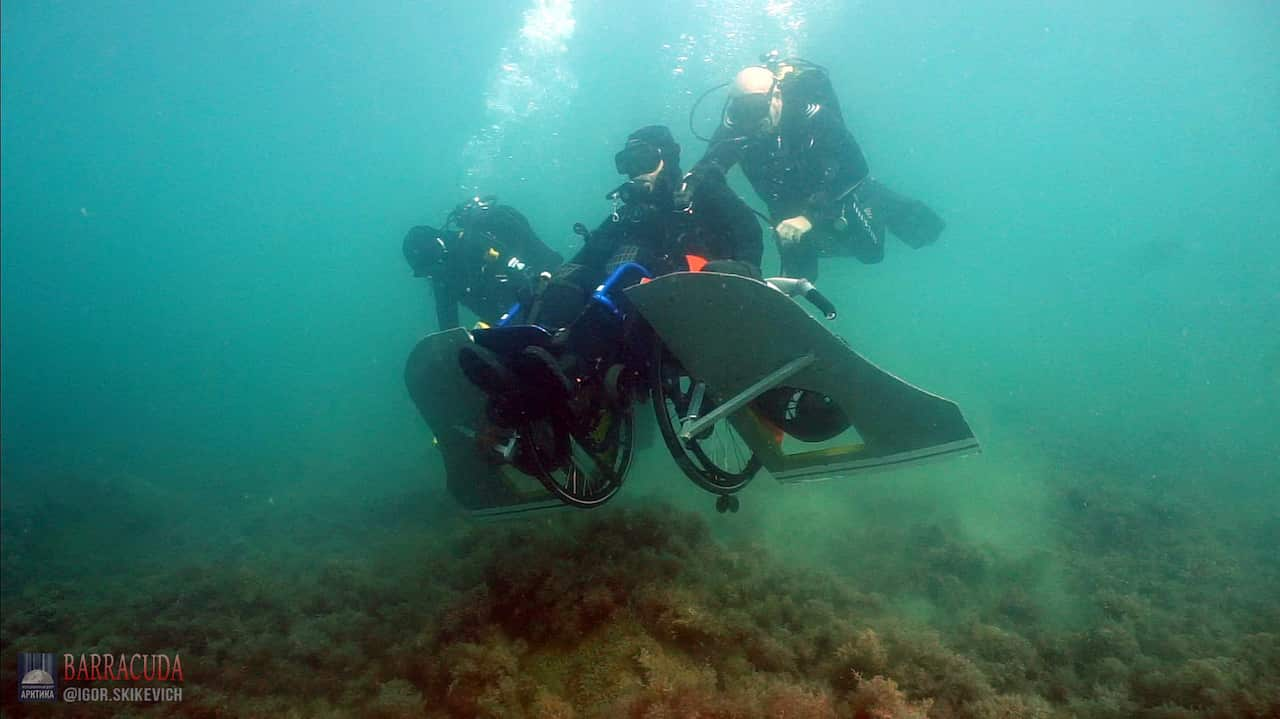 The coronavirus pandemic has put off his travel plans, but he's not losing hope.
The coronavirus pandemic has put off his travel plans, but he's not losing hope.

First wheelchair for scuba diving invented by Igor Skikevich Source: @igor.skikevich
"I have set a goal to travel to Australia. I don't know when and how, but I will definitely get there."
This year, together with his friend, a professional SSI diver-instructor Pavel Gurevich, he conducted large-scale tests of the underwater device in the Black Sea, establishing the first International school of para diving.
Now he dreams of finding like-minded people around the world and opening the special international centre for teaching diving to people with disabilities.
Besides his underwater adventures, Mr Skikevich is proud of his mountain climbing experiences, which took several years' preparation and training. He says many people didn't believe a person who uses a wheelchair could do mountain climbing.
“I studied all kinds of devices, bindings, various techniques of knot tying. Somehow it was possible to climb up, but when coming down, the harness pinched the chest or choked me."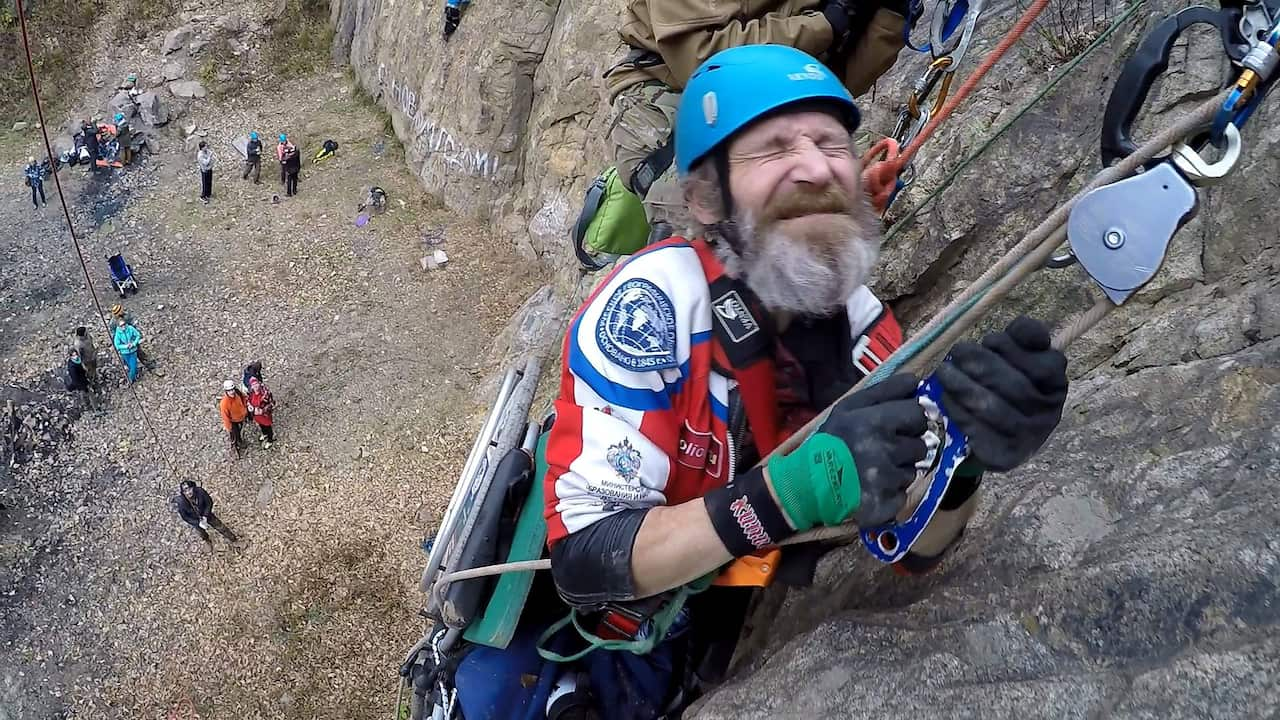 As a last resort, he decided to ask cavers, whose method is slightly different from that of climbers. It turned out that the solution to his problem was found in two small knots.
As a last resort, he decided to ask cavers, whose method is slightly different from that of climbers. It turned out that the solution to his problem was found in two small knots.

Two small knots opened the road to mountaineering Source: @igor.skikevich
“When you go up, there is no stability; the wheelchair is simply thrown from side to side. And suddenly one instructor says ‘What if we add two knots the middle?’ These knots saved the situation completely, and I could climb.”
Today Igor Skikevich lives and trains in the Moscow region. He is the head of the youth department at the Arctic Expeditionary Center. He plans to do an expedition to the Arctic soon.
Share

